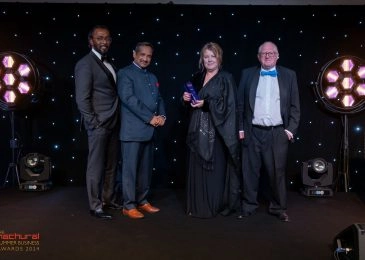Technology was our global saviour during the pandemic. It enabled many of us to continue working, provided communication with the outside world and, kept us afloat. For that, we should be profoundly grateful because, it made an enormously positive contribution to mental health during a time of huge uncertainty.

In the background, when things were ‘normal’, technology was playing an increasingly dominant role in most people’s lives. The latest stats tell us that the average person spends around 3.5 hours per day on their phone and checks it fifty-eight times per day.
A simple calculation tells us that is about 20% of waking time.
When white collar careers are considered, the amount of screen time skyrockets. An office worker must add time spent in front of a laptop or PC. That takes average screen time per day up to 11 hours or, 64.7% of waking time. Effectively, two-thirds of every day. Add in for some of us, the television screen and that number may climb higher still.
What did we do before technology? Is this dependency bad for us? How much time are we getting to spend with our own thoughts nowadays? I am not a luddite. Without technology my life would be significantly less fulfilling yet, I am increasingly wondering, what I might be missing by spending so much time in its company.
Technology and what it relentlessly bombards us with, cannot be without influence. Those who are selling something whether that be products, lifestyle, politics, aspiration or deliberate misinformation, are leveraging this massive opportunity to crowd out our headspace. There is no day or night online, just a rolling continuum of information and messages. The volume of white noise in both senses of the word, is unsustainable.
Digital channels in education are a double-edged tool. During lockdown they allowed vital learning to continue. Educational organizations to varying degrees, utilized online potential and as financial pressures mounted, the educators were in many cases overruled by the financiers who recognized the economies of delivery whilst paying little heed to its quality implications.

Technology is hugely useful to humankind but like any innovation or discovery, it can be dangerous in the wrong hands whether accidentally or, with malice aforethought. It does not carry health warnings but for decades, neither did cigarettes or alcohol. IBM pioneer George Fuechsel is credited with first quoting the term garbage in, garbage out meaning, computers only process what they are given. A pause for thought and consideration is in order regarding its use in business as a whole, but in education specifically. Technology is often presented as a panacea, the answer to everything, the only way forward. This is a gross oversimplification and an extremely dangerous direction of travel.
Restoring the work patterns of the pre 2020 world is unlikely yet experience shows us that the new rhythms created between then and now are jarring with increasing numbers of us. Experience had demonstrated that physical reconnection has passed the novelty stage and has genuine positive side effects on well-being, attitude, mood and motivation. Putting aside for a moment the health risks of infection transmission, being together again, is nice.
In an educational context, the restoration of face-to-face training groups has demonstrated the power it generates. Its absence for two years served only to magnify something which had lost its focus through over-familiarity. Its redeployment in a more thoughtful and discretionary way adds to its power and positive impact. Blending the elements available both traditional and novel, is producing a balanced and impactful approach to training and development. It actively considers the constituent elements such as relevance, objectives, content and context, delivery method, convenience, cost, mental-wellbeing and desired outcomes.

Face to face activity in general has been rehabilitated.
Proselytizing against technology is not the purpose, but a reflection on what it actually adds to personal life experience is useful. This may liberate us from certain habitual and slavish behaviours which have insidiously but relentlessly blunted our instinct to determine what is good for us and what is not.

